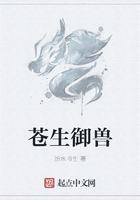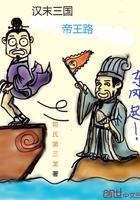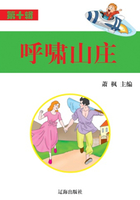The new race of poet-scholars which arose soon after Dante quickly made themselves masters of this fresh tendency.They did so in a double sense, being themselves the most acknowledged celebrities of Italy, and at the same time, as poets and historians, consciously disposing of the reputation of others.An outward symbol of this sort of fame was the coronation of the poets, of which we shall speak later on.
A contemporary of Dante, Albertinus Musattus or Mussatus, crowned poet at Padua by the bishop and rector, enjoyed a fame which fell little short of deification.Every Christmas Day the doctors and students of both colleges at the University came in solemn procession before his house with trumpets and, it seems, with burning tapers, to salute him and bring him presents.His reputation lasted till, in 1318, he fell into disgrace with the ruling tyrant of the House of Carrara.
This new incense, which once was offered only to saints and heroes, was given in clouds to Petrarch, who persuaded himself in his later years that it was but a foolish and troublesome thing.His letter 'To Posterity' is the confession of an old and famous man, who is forced to gratify the public curiosity.He admits that he wishes for fame in the times to come, but would rather be without it in his own day.In his dialogue on fortune and misfortune, the interlocutor, who maintains the futility of glory, has the best of the contest.But, at the same time, Petrarch is pleased that the autocrat of Byzantium knows him as well by his writings as Charles IV knows him.And in fact, even in his lifetime, his fame extended far beyond Italy.And the emotion which he felt was natural when his friends, on the occasion of a visit to his native Arezzo (1350), took him to the house where he was born, and told him how the city had provided that no change should be made in it.In former times the dwellings of certain great saints were preserved and revered in this way, like the cell of St.Thomas Aquinas in the Dominican convent at Naples, and the Portincula of St.Francis near Assisi; and one or two great jurists so enjoyed the half-mythical reputation which led to this honour.Towards the close of the fourteenth century the people at Bagnolo, near Florence, called an old building the 'Studio of Accursius' (died in 1260), but, nevertheless, suffered it to be destroyed.It is probable that the great incomes and the political influence which some jurists obtained as consulting lawyers made a lasting impression on the popular imagination.
To the cult of the birthplaces of famous men must be added that of their graves, and, in the case of Petrarch, of the spot where he died.
In memory of him Arqua became a favorite resort of the Paduans, and was dotted with graceful little villas.At this time there were no 'classic spots' in Northern Europe, and pilgrimages were only made to pictures and relics.It was a point of honour for the different cities to possess the bones of their own and foreign celebrities; and it is most remarkable how seriously the Florentines, even in the fourteenth century-- long before the building of Santa Croce--labored to make their cathedral a Pantheon.Accorso, Dante, Petrarch, Boccaccio, and the jurist Zanobi della Strada were to have had magnificent tombs there erected to them.Late in the fifteenth century, Lorenzo il Magnifico applied in person to the Spoletans, asking them to give up the corpse of the painter Fra Filippo Lippi for the cathedral, and received the answer that they had none too many ornaments to the city, especially in the shape of distinguished people, for which reason they begged him to spare them; and, in fact, he had to be content with erecting a cenotaph.And even Dante, in spite of all the applications to which Boccaccio urged the Florentines with bitter emphasis, remained sleeping tranquilly in San Francesco at Ravenna, 'among ancient tombs of emperors and vaults of saints, in more honorable company than thou, OFlorence, couldst offer him.' It even happened that a man once took away unpunished the lights from the altar on which the crucifix stood, and set there by the grave, with the words, 'Take them; thou art more worthy of them than He, the Crucified One! ' (Franco Sacchetti, Novella 121.)And now the Italian cities began again to remember their ancient citizens and inhabitants.Naples, perhaps, had never forgotten its tomb of Virgil, since a kind of mythical halo had become attached to the name.
The Paduans, even in the sixteenth century, firmly believed that they possessed not only the genuine bones of their founder, Antenor, but also those of the historian Livy.'Sulmona,' says Boccaccio, 'bewails that Ovid lies buried far away in exile; and Parma rejoices that Cassius sleeps within its walls.' The Mantuans coined a medal in 1257with the bust of Virgil, and raised a statue to represent him.In a fit of aristocratic insolence, the guardian of the young Gonzaga, Carlo Malatesta, caused it to be pulled down in 1392, and was afterwards forced, when he found the fame of the old poet too strong for him, to set it up again.Even then, perhaps, the grotto, a couple of miles from the town, where Virgil was said to have meditated, was shown to strangers, like the 'Scuola di Virgilio' at Naples.Como claimed both the Plinys for its own, and at the end of the fifteenth century erected statues in their honour, sitting under graceful baldachins on the facade of the cathedral.
History and the new topography were now careful to leave no local celebrity unnoticed.At the same period the northern chronicles only here and there, among the list of popes, emperors, earthquakes, and comets, put in the remark, that at such a time this or that famous man 'flourished.' We shall elsewhere have to show how, mainly under the influence of this idea of fame, an admirable biographical literature was developed.We must here limit ourselves to the local patriotism of the topographers who recorded the claims of their native cities to distinction.















